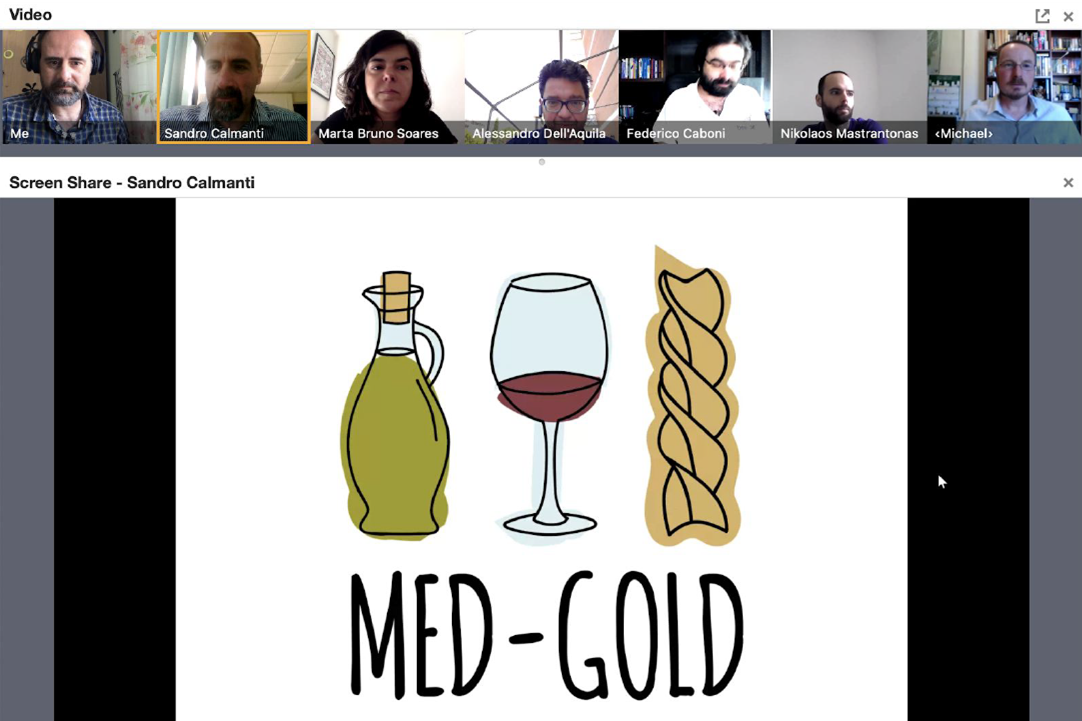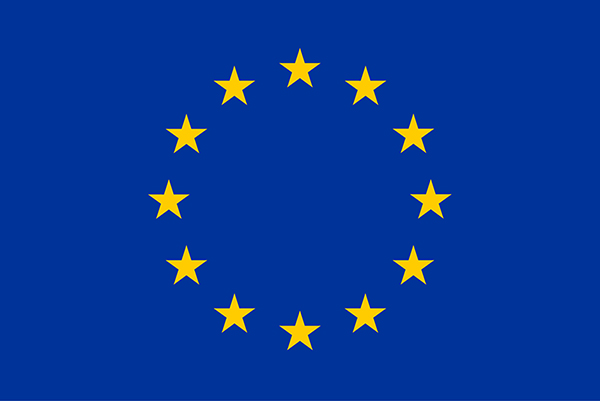The MED-GOLD project organised a Living Lab to present the most recent methodologies for the co-production of climate services with end-users following a hands-on approach. The Living Lab was originally planned as a Summer School to be held in Cagliari (Italy) between 25 and 29 May 2020, but it was converted during spring 2020 into a remotely-based training event owing to the COVID-19 situation.
The training was conducted for five weeks, from May 25 to June 25, with weekly interactive webinars by speakers across different disciplines and online working groups within multidisciplinary teams, supported by MED-GOLD experts as mentors.
The purpose of the Living Lab was to demonstrate the MED-GOLD concepts and methodologies to develop climate services, as well as enabling the students to become familiar with climate data and tools made available through the Copernicus Climate Data Store (CDS). A total of 19 people participated in the online event.
Real problem-holders
Participants were challenged by real users of climate information, who were referred to as problem-holders during the training, to develop climate services for the agri-food sector building on the knowledge and skills shared by users during the event.
The students worked in three groups – GREEN, RE-WINE and RisCOFF – to meet the challenges presented by the problem-holders in the wine and coffee sectors.
- The GREEN team worked on the challenge faced by a wine producer when deciding whether to purchase plant protection products for the vineyard in advance, when prices are lower. To make this decision, the team assessed the added value of using climate predictions of total spring precipitation, comparing these outcomes with the ones obtained by using past average data. This allowed the team to choose the most appropriate method to reduce plant protection costs while increasing the benefits for the grape and wine industry.
- The RE-WINE team also addressed the challenge of the wine sector to identify conditions for which it would be cost-effective for vineyard managers to consider climate predictions to calculate their stock of protection products. The team drafted a research project proposal with all the necessary steps to answer this question, including multidisciplinary aspects like stakeholder engagement, tailoring and validation of climate predictions, development of visualization, and results’ evaluation.
- The RisCOFF team focused on the development of an early warning system for coffee production. The team defined bioclimatic indices based on climate variables (temperature and precipitation), that are useful to highlight the occurrence of extreme events affecting crop phenology, such as blossom, fruit development, and maturation.
Considering the overall high quality work done by participants, the MED-GOLD organization offered to pay the open access fee for up to three peer reviewed papers based on the work developed in the Living Lab, or as a result of a network established during the event.
The on-line training event was a success according to the feedback from the participants and taking into account the circumstances of the COVID-19 emergency. It also resulted in a virtually zero-emission event compared with a standard summer school with students travelling to a location. Considering this, it could be also replicated for the second training event, planned for late spring 2021.
Plenary sessions
The general program of the Living Lab included five plenary sessions, which were recorded and are freely accessible on-line:
- Session 1, 25 May 2020, including presentations by Carlo Buontempo (ECMWF), António Graça (Sogrape Vinhos), Chiara Monotti (Barilla), Ilaria Danesi (Danesi Caffè). https://youtu.be/7GPoKl0qtoA
- Session 2, 4 June 2020, including presentations by Marta Bruno Soares (Univ. Leeds). https://youtu.be/JXuu19He6q0
- Session 3, 11 June 2020, including presentations by Ronald Hutjes (Univ. Wageningen), Alessandro Dell’Aquila (ENEA) and Massimiliano Pasqui (CNR). https://youtu.be/S1SXrDbf_0g
- Session 4, 18 June 2020, including presentations by Marta Terrado (BSC) and Sandro Calmanti (ENEA). https://youtu.be/95me7kAsGgQ
- Session 5, 25-06-2020, including presentations by Natalie Suckall (Univ. Leeds), Federico Caboni (BeeToBit), Michael Sanderson (Met Office). https://youtu.be/QEdyDpm8ios
More information: https://www.med-gold.eu/med-gold-living-lab-2020/
Written by José L. Cánovas (Barcelona Supercomputing Center)


